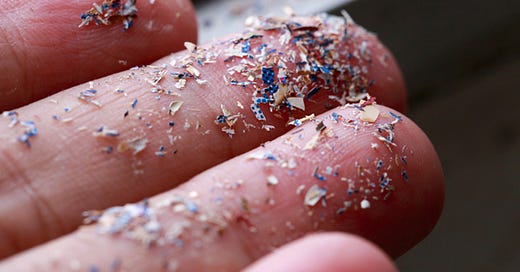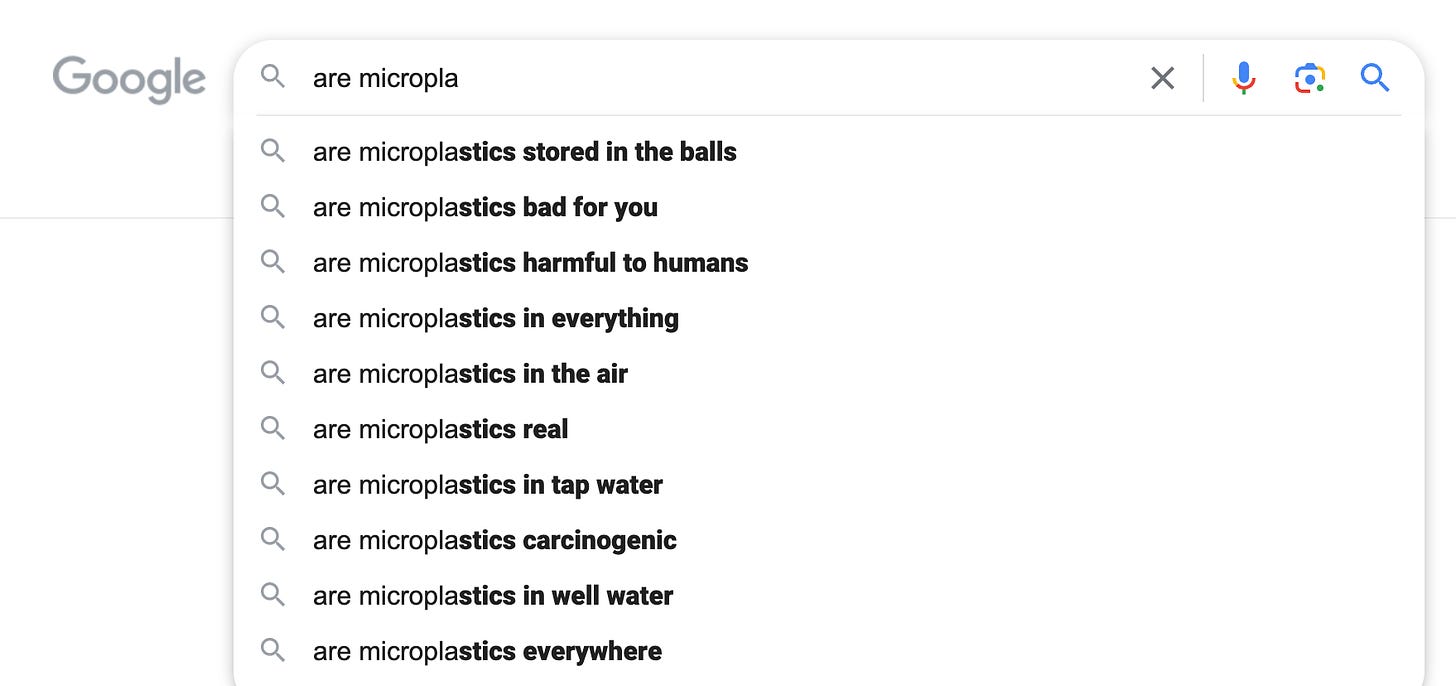Plastics are everywhere — but mostly in places they shouldn't be
Turns out, maybe we should have been a bit more responsible with how we used plastics.
A new study in Toxicological Sciences has millions of people searching the Internet to find out: “are microplastics stored in the balls”?
The short answer is yes, with the understanding “balls” is the colloquial term for testicles. Researchers tested human testicles and dog testicles and found microplastics in every sample. Back in February, a separate study found microplastics in every sample of the human placenta that was tested. In fact, “there hasn’t been a body part that people have looked but haven’t found [microplastics] in,” environmental health researcher Tracey Woodruff told Scientific American.
Microplastics — small pieces of plastic less than 5 millimeters long — are, literally, everywhere. They have been found in clouds, beer, wind, apples, poop, honeybees, and much more. Microplastics have been detected in the Mariana Trench and the Grand Canyon, on uninhabited Pacific islands and at the top of Mount Everest.
Woodruff says “it’s not a stretch to think that we’re just going to find more adverse health effects with microplastics.” Those adverse health effects can include reduced fertility, hormone disruptions, immune dysfunction, and other illnesses, according to experts.
Currently, the World Health Organization is busy with other crises with better fear-mongering potential. So they’re not using this unseen enemy to ratchet up concern. A 2019 report from the World Health Organization looked at the evidence related to microplastics in the water cycle. “Based on the limited information we have, microplastics in drinking water don’t appear to pose a health risk at current levels,” said Dr Maria Neira, a director of Public Health, Environment and Social Determinants of Health.
The report found that:
Although there is insufficient information to draw firm conclusions on the toxicity related to the physical hazard of plastic particles, particularly for the nano size particles, no reliable information suggests it is a concern.
So the World Health Organization — the very same looking to wrest control away from sovereign nations to be able to declare health emergencies and exercise other powers such as travel restrictions and lockdowns — basically says: don’t worry, be happy. OK, let’s go with it.
“There is no way to avoid [microplastics],” say the good folks at Plastics Today, a community for plastics professionals. “It cannot be prevented short of not using any plastic anywhere ever again, and that would seriously degrade our world. In short, we’re just going to have to learn to live with microplastics.”
The problem of microplastics, including scale, is ultimately that it’s almost entirely unseen, making the old adage ‘out of sight, out of mind’ an appropriate one. And while there is no easy solution or an ultimate fix to the issue — we’re now breathing tiny particles into our body — it is a call for all of us to do a better job sourcing our food, water, clothing and other products as cleanly as we can.
If that sounds like an impossible task in this day and age, it most certainly is, but even as a form of resistance against globalists who would see us jabbed and poisoned, enslaved — and worse — it’s something to hang your hat on.





And what is one of the most significant sources of microplastics? Vehicle brake and tire wear (https://www.ncbi.nlm.nih.gov/pmc/articles/PMC5664766/), with electric vehicles being worse due to their higher on average weight because of battery systems.
An organization like the WHO, as they attempt to gain power and control, cares not about health as evidenced by the covid debacle. The harmful effects of plastics are well known but apparently ignored. With phthalates and xenoestrogens saturating our food, air and water, males are becoming more feminized, leading to loss of fertility and gender dysphoria in some. Of course this is part of the depopulation path Bill + friends would like to see. Microplastics attract other toxins in the body and are difficult to eliminate so may build up for years, contributing to a chronically sick population that requires ever more healthcare, or shall we call it "sickcare". I've tried to eliminate as much plastic as I can but find it near impossible. I see how entrenched plastic has become, so for the time being, I look for ways to detoxify and avoid it if possible.